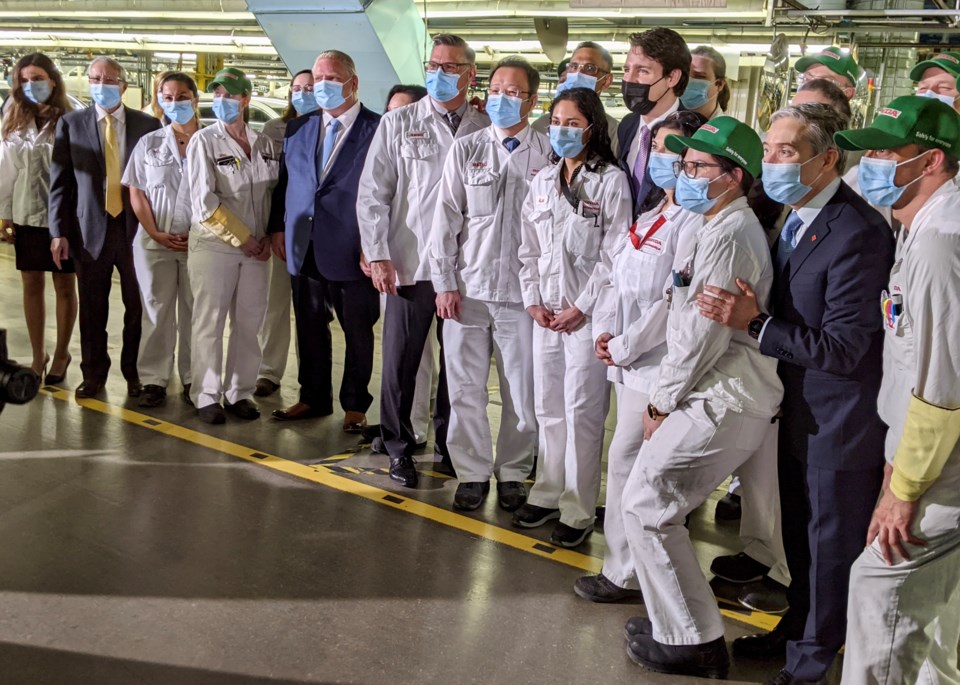Federal and provincial tax dollars will help fuel Honda Canada’s latest expansion.
Prime Minister Justin Trudeau and Ontario Premier Doug Ford were on hand Wednesday morning when the Japanese automaker announced a $1.38-billion, six-year upgrade to its Alliston manufacturing plants.
The governments of Canada and Ontario will each contribute $131.6 million to the upgrades, part of Honda’s plans to make battery electric vehicles represent 100 per cent of its North American sales by 2040.
Trudeau said the upgrade is important as this country’s economy recovers from the pandemic.
“For decades, the auto sector has helped the Canadian economy grow,” the PM said, noting that means employment too. “It’s going to secure thousands of middle-class jobs right across Ontario.”
Honda’s Alliston plants employ more than 4,200 people, making them Simcoe County's largest employer. By retooling both production lines at the Alliston plants, Honda will secure not only those jobs, but others throughout the automaker’s extensive Canadian supplier network.
Ford also said the government funding was important.
“This will assure Honda builds the next generation of hybrid vehicles right here,” said the premier, who also called Ontario an automotive powerhouse. “The cars of the future will be built here in Alliston and all across Ontario for decades to come.”
“It’s a major turning point for Honda and for Ontario,” said Vic Fedeli, Ontario minister of economic development, job creation and trade.
Francois-Philippe Champagne, federal minister of innovation, science and industry, said Ottawa’s investment will help Honda produce vehicles Canadians want - those with low and zero emissions.
“This may be about seizing the moment,” he said. “Honda is a great example of how the economy and the environment can work together.”
As part of Honda’s goal to reach zero emissions by 2040, its Alliston plants are to implement new and innovative technologies, processes, supply chain and vehicle research and development programs.
And it will become North America’s lead plant for the new 2023 CR-V hybrid crossover.
“This investment not only ensures our product and manufacturing competitiveness within Ontario, Canada and abroad, but also significantly bolsters our ongoing efforts to reduce greenhouse gas (GHG) emissions to help Canada attain its overall climate targets,” said Jean Marc Leclerc, president and CEO of Honda Canada.
Honda says its new hybrid vehicles will reduce GHGs by 30 per cent compared to traditional gas-powered vehicles.
Ford was asked during media questioning about cancelling the province’s rebate program for electric vehicles in 2018.
“Since we’ve been in office, electric vehicles have tripled in sales,” the premier replied.
Honda has the capacity to produce more than 400,000 vehicles and 190,000 engines annually, including the Honda Civic and CR-V models for the Canadian and North America markets, as well as for export. Approximately 100,000 Canadian-built Civics and CR-Vs are sold annually in Canada.
The Civic has been Canada’s best-selling passenger car for 24 consecutive years.



